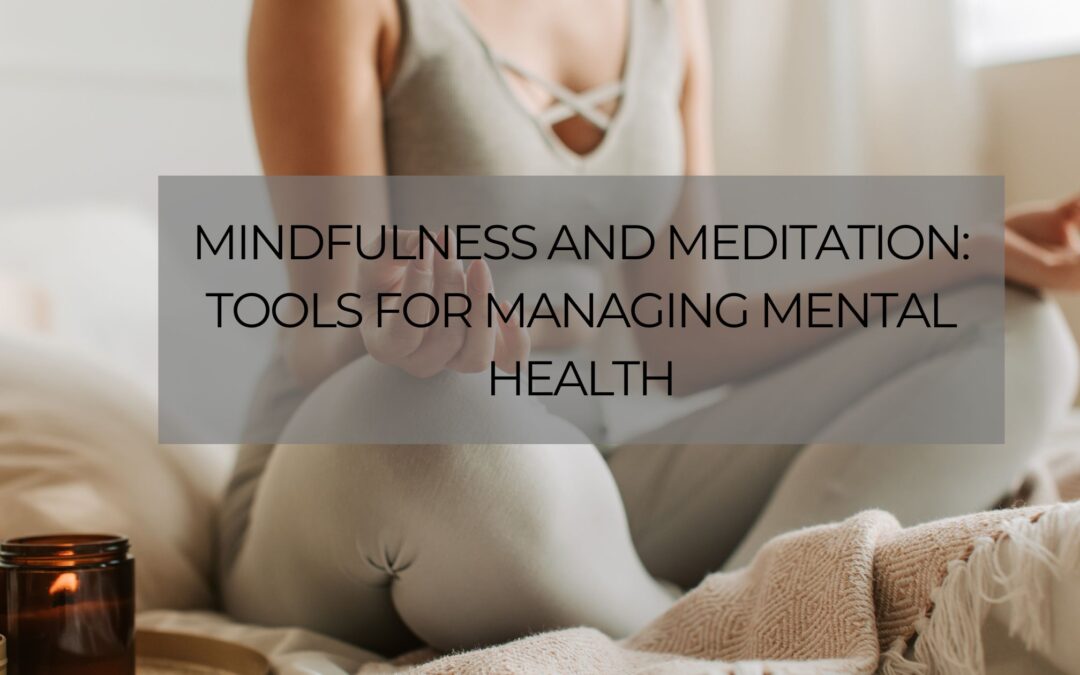In today’s fast-paced world, mental health struggles are becoming increasingly common. Stress, anxiety, and depression often result from juggling personal and professional responsibilities, leaving many feeling overwhelmed. While therapy, medication, and lifestyle changes are key pillars of mental health management, mindfulness and meditation have emerged as powerful tools to support mental well-being.
What is Mindfulness?
Mindfulness is the practice of being fully present in the moment without judgment. It encourages individuals to observe their thoughts, feelings, and surroundings with curiosity and awareness rather than reacting impulsively. When practiced consistently, mindfulness can help break the cycle of overthinking and stress, creating a sense of calm and clarity.
At its core, mindfulness teaches us to focus on now. For example, instead of worrying about tomorrow’s workload or yesterday’s argument, mindfulness redirects attention to the current moment, such as noticing the rhythm of your breath or the sounds around you. Over time, this practice helps reduce the mental noise that fuels anxiety and overwhelm.
The Power of Meditation
Meditation is often described as the practice of training your mind, much like physical exercise trains your body. It typically involves sitting in a quiet space, focusing on a specific point—such as the breath, a word (mantra), or a visual image—to achieve mental clarity and relaxation.
Scientific research has consistently highlighted meditation’s benefits for mental health. A study published in JAMA Internal Medicine found that mindfulness meditation programs can significantly reduce symptoms of anxiety, depression, and stress. Regular meditation lowers cortisol (the stress hormone) levels, improves concentration, and enhances emotional resilience.
Types of meditation that are particularly effective include:
- Focused Attention Meditation – Concentrating on one thing, such as breathing, helps calm racing thoughts.
- Loving-Kindness Meditation – Promotes compassion toward oneself and others, reducing feelings of anger and isolation.
- Body Scan Meditation – Involves scanning through your body to identify and release tension.
Benefits for Mental Health
Mindfulness and meditation provide a range of mental health benefits, including:
- Reduced Stress and Anxiety
By slowing down and redirecting your thoughts, meditation soothes the nervous system and reduces stress-related symptoms like muscle tension, rapid heart rate, and sleeplessness. Mindfulness also breaks the cycle of catastrophizing—when small stressors spiral into overwhelming worries. - Improved Focus and Concentration
Modern distractions often leave our minds scattered. Meditation retrains the brain to stay focused on one task at a time, improving productivity and reducing mental fatigue. - Better Emotional Regulation
Mindfulness cultivates self-awareness, helping individuals recognize emotional triggers before reacting impulsively. This awareness allows for healthier responses to difficult situations, improving relationships and overall well-being. - Enhanced Self-Compassion
Both practices encourage kindness toward oneself. Instead of engaging in negative self-talk, individuals learn to treat their thoughts with care, leading to improved self-esteem.
Getting Started
Starting with mindfulness or meditation doesn’t require special tools or hours of your day. Begin with small steps:
- Dedicate 5-10 minutes each day to focus on your breathing.
- Use apps like Headspace or Calm for guided meditations.
- Practice mindfulness during routine activities, such as eating, walking, or showering—pay attention to every sensation.
Final Thoughts
Mindfulness and meditation are accessible, proven tools for managing mental health. By incorporating these practices into your daily life, you can reduce stress, improve focus, and build emotional resilience. While they are not replacements for professional help, they are valuable additions to any mental health toolkit—simple yet transformative practices that bring peace in a chaotic world.
